Mondo Cinema
A sexy classic turns into the hot movie of the moment: The Virgin Queen of Pillow Talk takes charge
Looks like the hottest ticket on Houston’s alt-film circuit right now may be — no kidding — Pillow Talk.
Yes, you read that correctly: Pillow Talk, the fluffy 1959 romantic comedy starring Doris Day and Rock Hudson.
It’s being screened at the Museum of Fine Arts, Houston as part of Universal Pictures: Celebrating 100 Years, the MFAH film department’s month-long centennial tribute to the storied Hollywood studio. This weekend, the series will showcase Spike Lee’s Do the Right Thing at 7 p.m. Saturday, and James Whale’s Show Boat at 5 p.m. Sunday. And next weekend, the series continues with Pillow Talk at …
Well, here’s the thing: Originally, the movie was set for a one-time-only presentation, at 7 p.m. Feb. 15. But that showing sold out. Completely. So the MFAH film department, citing obvious public demand, has gone ahead and scheduled a second screening, at 1 p.m. Feb. 17.
The first image we have of Day in Pillow Talk is an admiring close-up of her lovely legs as she arranges her stockings.
Cowabunga.
For the benefit of those who tuned in late: Very much a pop-culture product of its time — and, as such, arguably more enlightening than most historical or anthropological overviews of the period’s mood and mores — Pillow Talk was the first and arguably best of some half-dozen movies that irreversibly established Day as the Virgin Queen of wholesome sex comedies during the mid-20th century.
The first image we have of Day in Pillow Talk is an admiring close-up of her lovely legs as she arranges her stockings. But don't misunderstand: She's in her own bedroom, alone, getting dressed for work. This bait-and-switch is typical of the tickle-and-tease that passed for sophistication in pseudo-risqué comedies of the era.
(The DVD edition of Pillow Talk includes the original 1959 coming-attractions trailer, which promises “the most sparkling sexcapade that ever winked at conventions.” Yeah, right.)
Another distinguishing characteristic: The movie's depiction of single working women — whoops, excuse me, I meant to say “career girls” — as pitiably incomplete and unhappy creatures in desperate need of a good man, a lusty ravishing or, preferably, both.
Day plays Jan Morrow, an interior decorator who's sufficiently successful to afford a stunning wardrobe, a spacious Manhattan apartment and a housekeeper given to excessive drinking and uninhibited wisecracking. Early on, however, Pillow Talk tips its hand by underscoring Jan’s true worth in the world.
When she complains about the playboy who monopolizes their shared party line, a phone company official makes sympathetic noises, but claims he can't do anything to solve the problem. Yes, he knows that Jan needs to use her phone for business purposes. But, no, she can’t be placed any higher on the list of folks waiting for single lines. Unless, of course, some kind of emergency arose.
“If you were to become pregnant,” he explains, “you'd jump right to the top of the list.” But — remember, this is 1959 — that would require a husband, right?
Actually, Jan does have a serious marriage proposal to contemplate: Jonathan Forbes (Tony Randall), a fabulously wealthy client, wants to make her his fourth wife. But Jan isn't interested, and not just because of Jonathan's dismal matrimonial track record. She simply doesn't love the guy. And she doesn't want to marry anyone just for his money.
Could it be that — gasp! — Jan enjoys her independence? That's her story, and she's sticking to it.
But Alma (Thelma Ritter), her cynical housekeeper, isn't convinced: "If there's anything worse than a woman being alone, it's a woman who says she likes it." Indeed, even the annoying playboy — played by Rock Hudson as the kind of guy who, in an updated remake, would likely read Maxim and Playboy on his iPad — feels entitled to make snide remarks about Jan’s unmarried status.
If she doesn't like to hear his crooning sweet nothings to his many girlfriends every time she picks up the phone, well, that's her problem, not his. “Don't take your bedroom problems out on me,” he snarls.
Naturally, these opposites are destined to attract.
Brad Allen (Hudson) — who just happens to be a good friend of Jonathan — is intrigued when he fortuitously recognizes Jan in a nightclub. She doesn't know who he is, however, and he contrives to hide his true identity by posing as a courtly Texas gentleman named Rex Stetson. (Yes, Hudson attempts a Texas accent. No, you won’t believe your ears.) He begins a meticulously chaste courtship, figuring the best way to lure Jan into bed is to behave as though his intentions are purely honorable.
And just to have a little fun at her expense, he (as Brad, speaking on the phone) drops none-too-subtle hints that any guy (like Rex) who's this polite must be — wink-wink, nudge-nudge — very devoted to his mother.
Could it be that — gasp! — Jan enjoys her independence? That's her story, and she's sticking to it.
(One can only wonder what mixed emotions Hudson felt as the famously closeted gay actor played a straight character who pretended to be effeminate.)
Despite Rex’s pronounced “sensitivity” — or, more likely, because of it — Jan falls for the fellow’s smooth talk. But just before Brad can make his move — are you ready for this? are you sitting down? — he realizes he has truly fallen in love with her.
And even then, he's forced to delay his gratification when she sees through his role playing.
Brad desperately woos her, apologizes to her, even hires her to redecorate his Hugh Hefneresque apartment. But when Jan gets even by turning his love shack into a tacky faux bordello, Brad responds by smashing through her apartment door, grabbing her out of bed, and carrying her down the street, back to his place.
Jan squawks and complains — but, oddly enough, no passer-by comes to her aid. (Indeed, a passing cop more or less gives Brad his “Atta boy!” approval.) Or maybe it's not so odd after all: As I said, this is 1959, back when men were able to do this sort of thing with impunity — in the movies, at least — and women, when they came to their senses, seemed to really, really like it.
So why does this late 1950s artifact remain so popular that it can sell out an MFAH screening? Because even as you recognize the smug (and frankly sexist) assumptions on which the comedy is based, Pillow Talk remains, for better or worse, inexplicably irresistible as a lavishly produced, campily retrograde guilty pleasure.
Of course, it helps that Day and Hudson are such appealing farceurs, and the supporting players are such scene-stealing scamps. But it helps even more that much of this “sparkling sexcapade” is undeniably funny, albeit in some of the most blatantly non-PC ways imaginable.
Curious? Then you might want to order your tickets now to avoid another sellout.
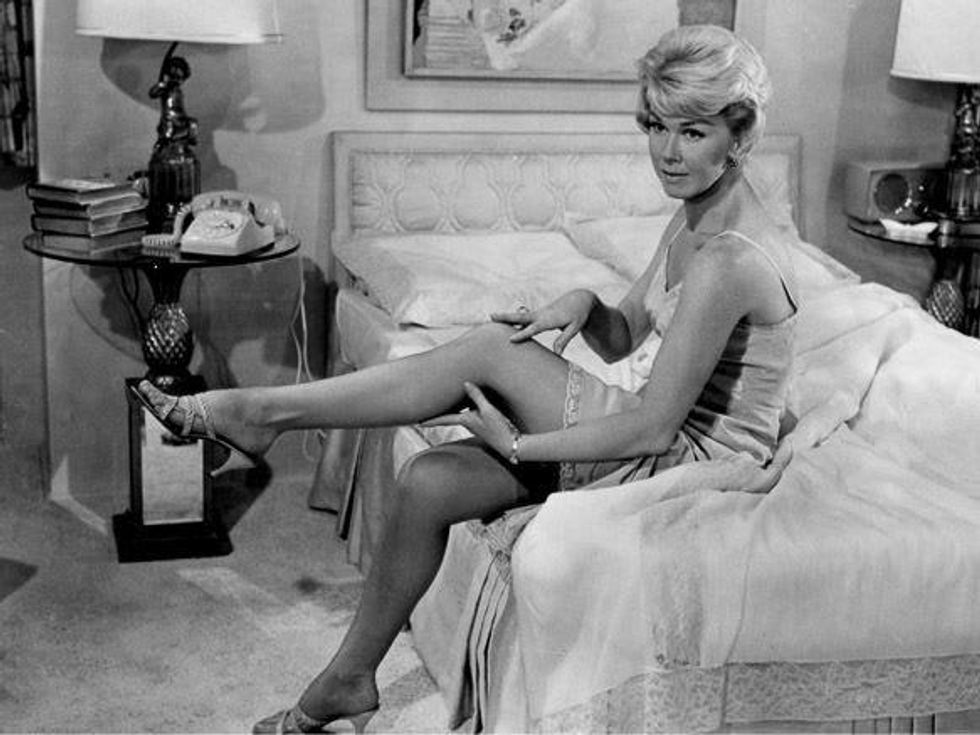
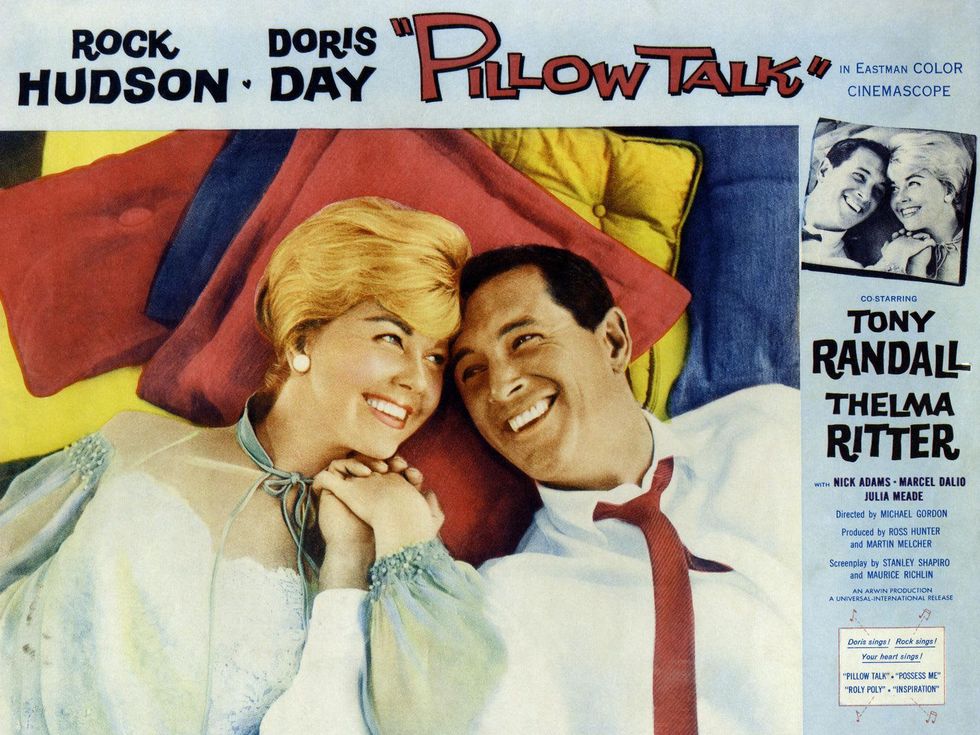
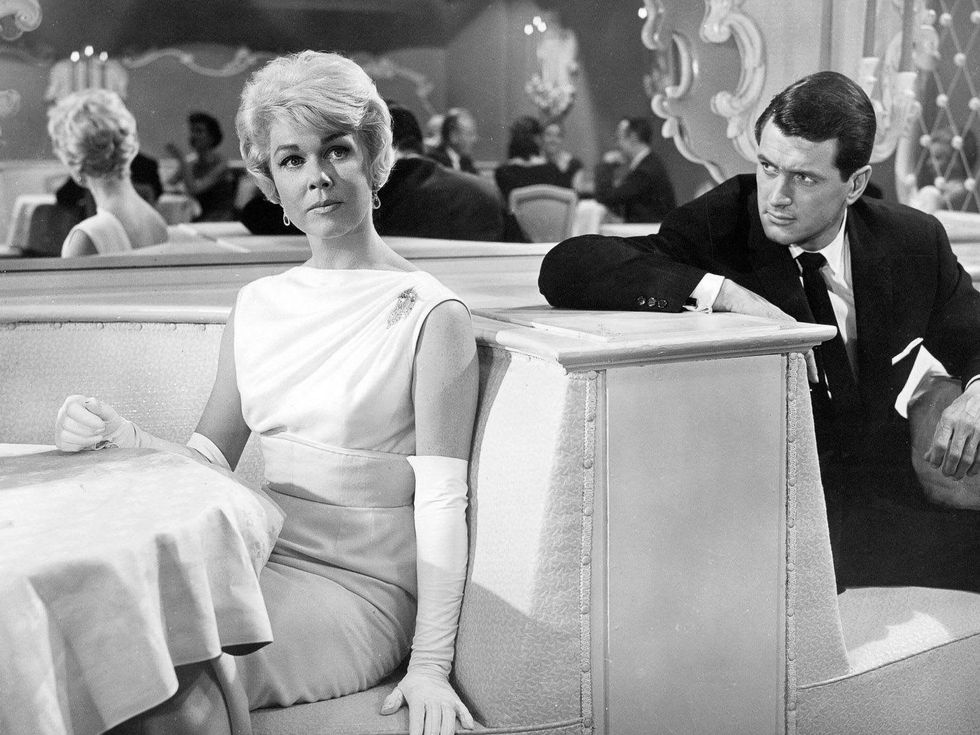
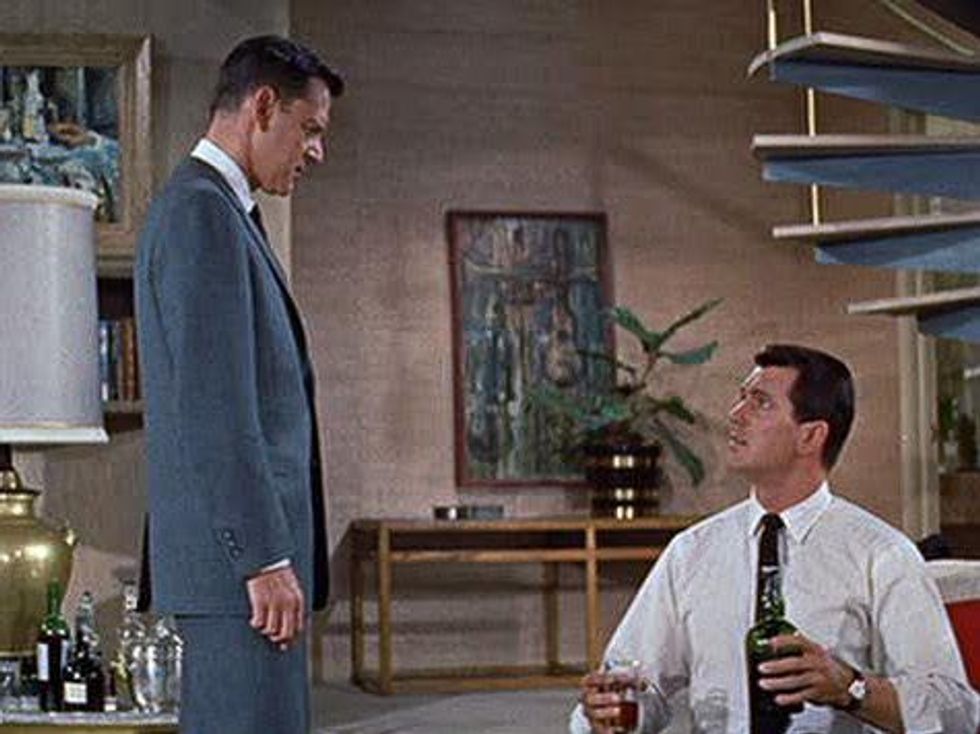
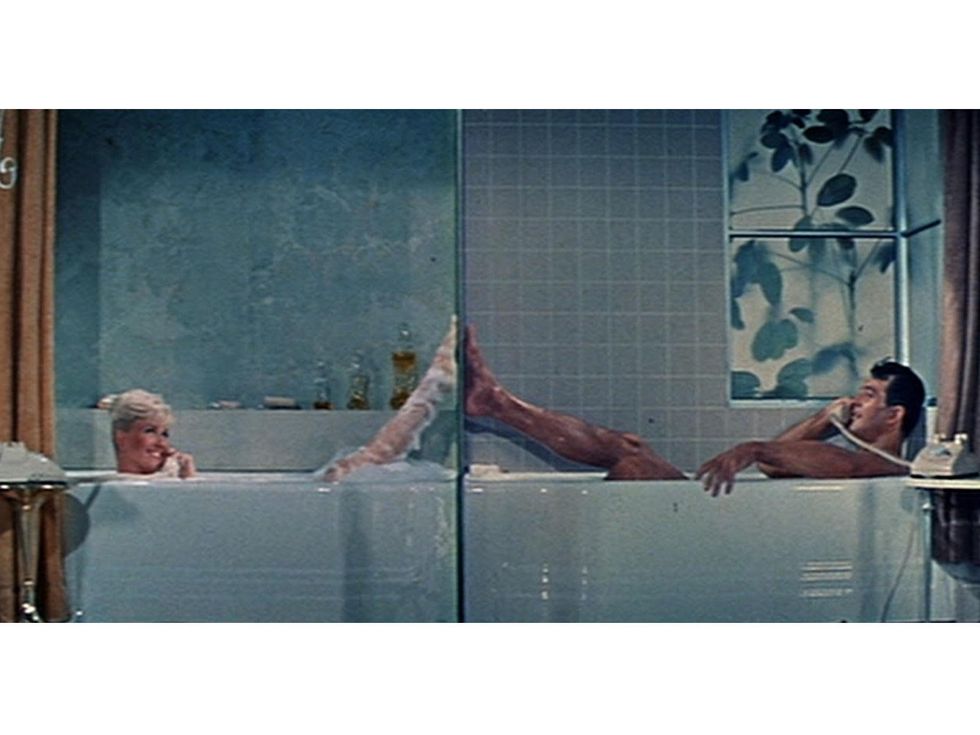

 A rendering offers a bird's-eye preview of the new greenspace.Image by by Cong Nie/Courtesy of Museum of Fine Arts, Houston
A rendering offers a bird's-eye preview of the new greenspace.Image by by Cong Nie/Courtesy of Museum of Fine Arts, Houston